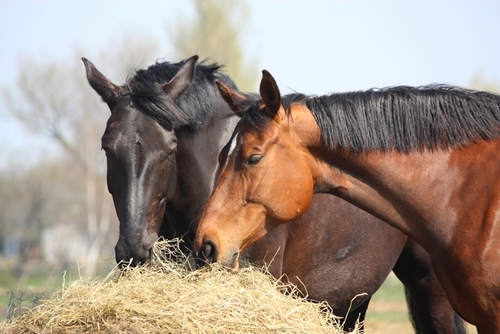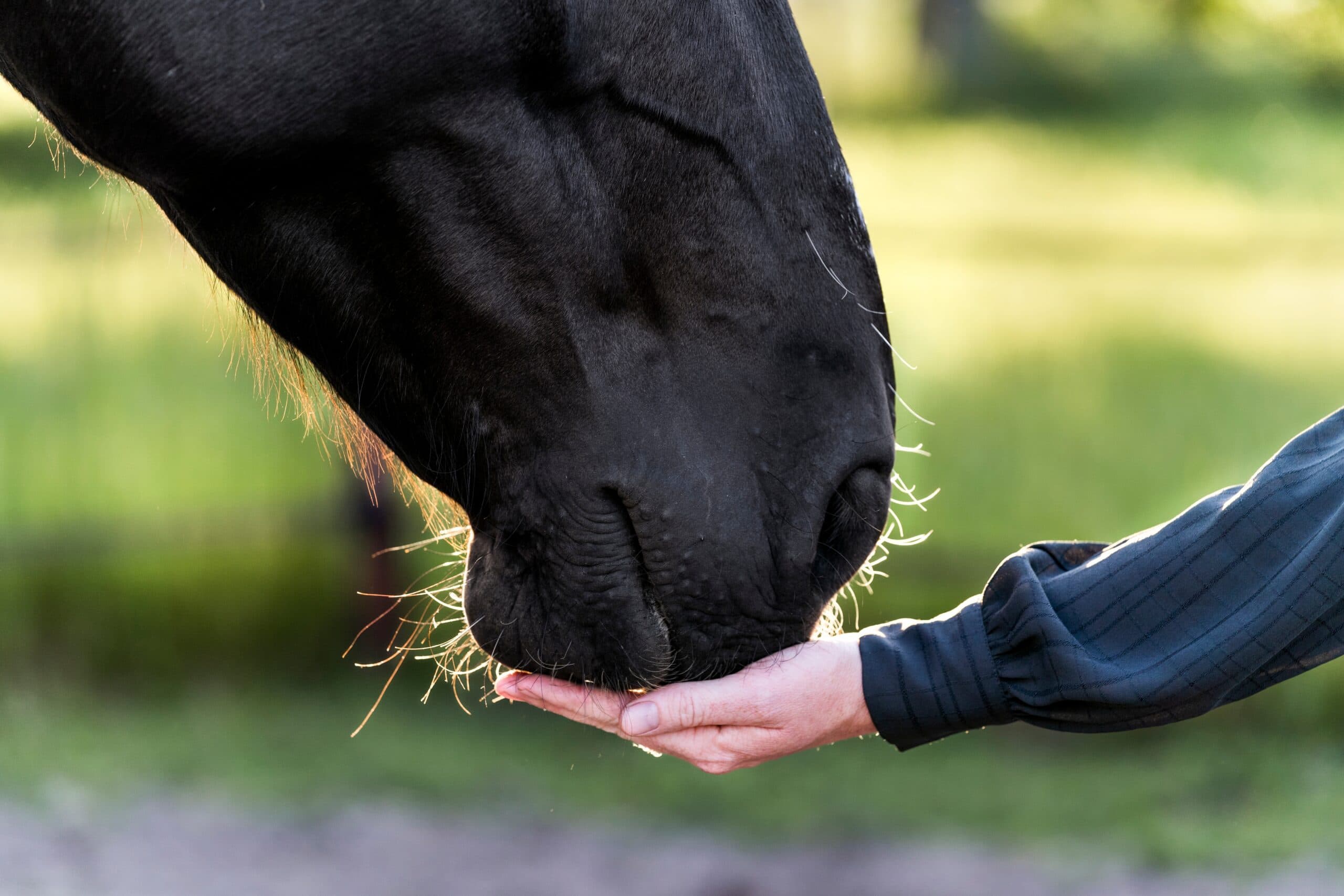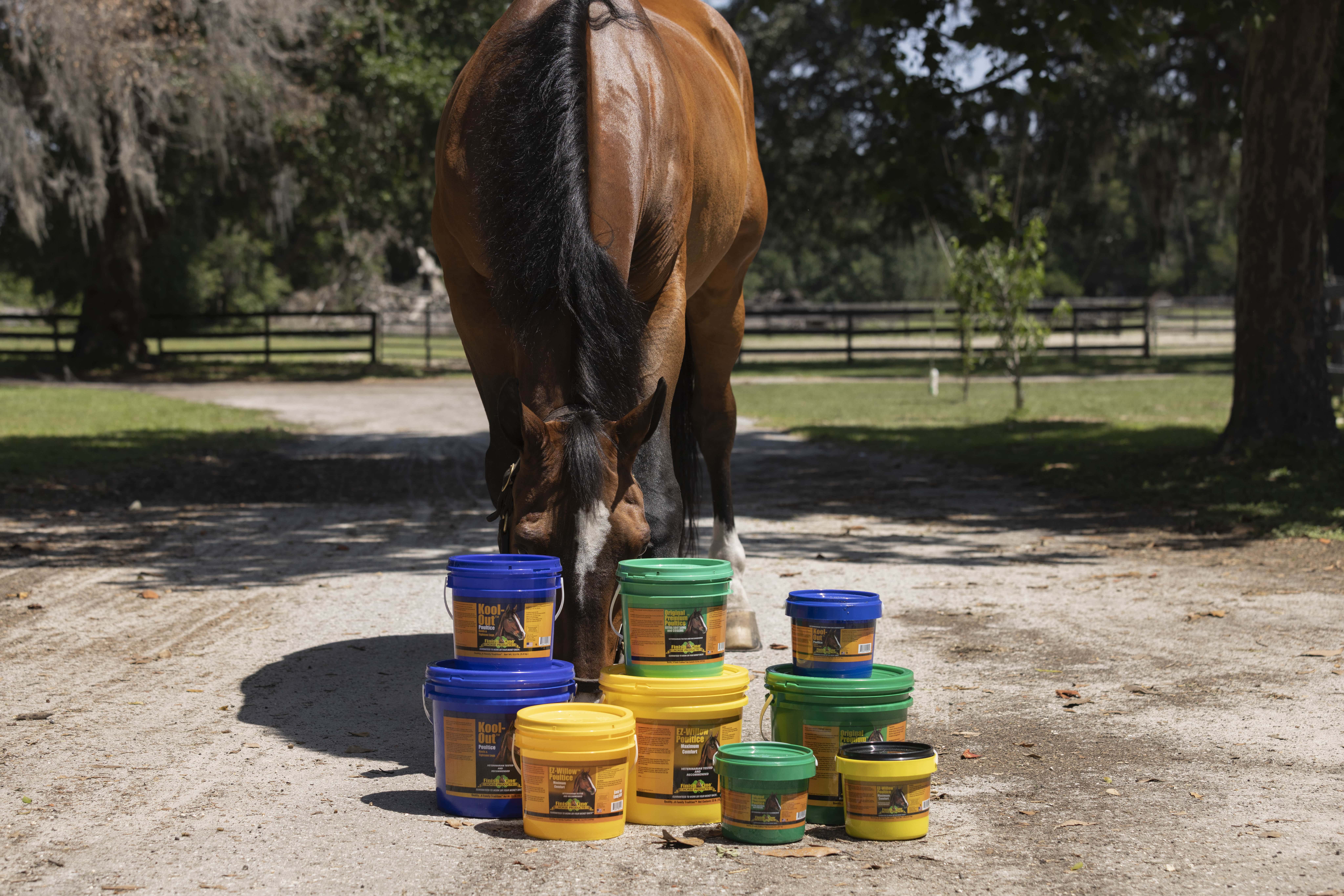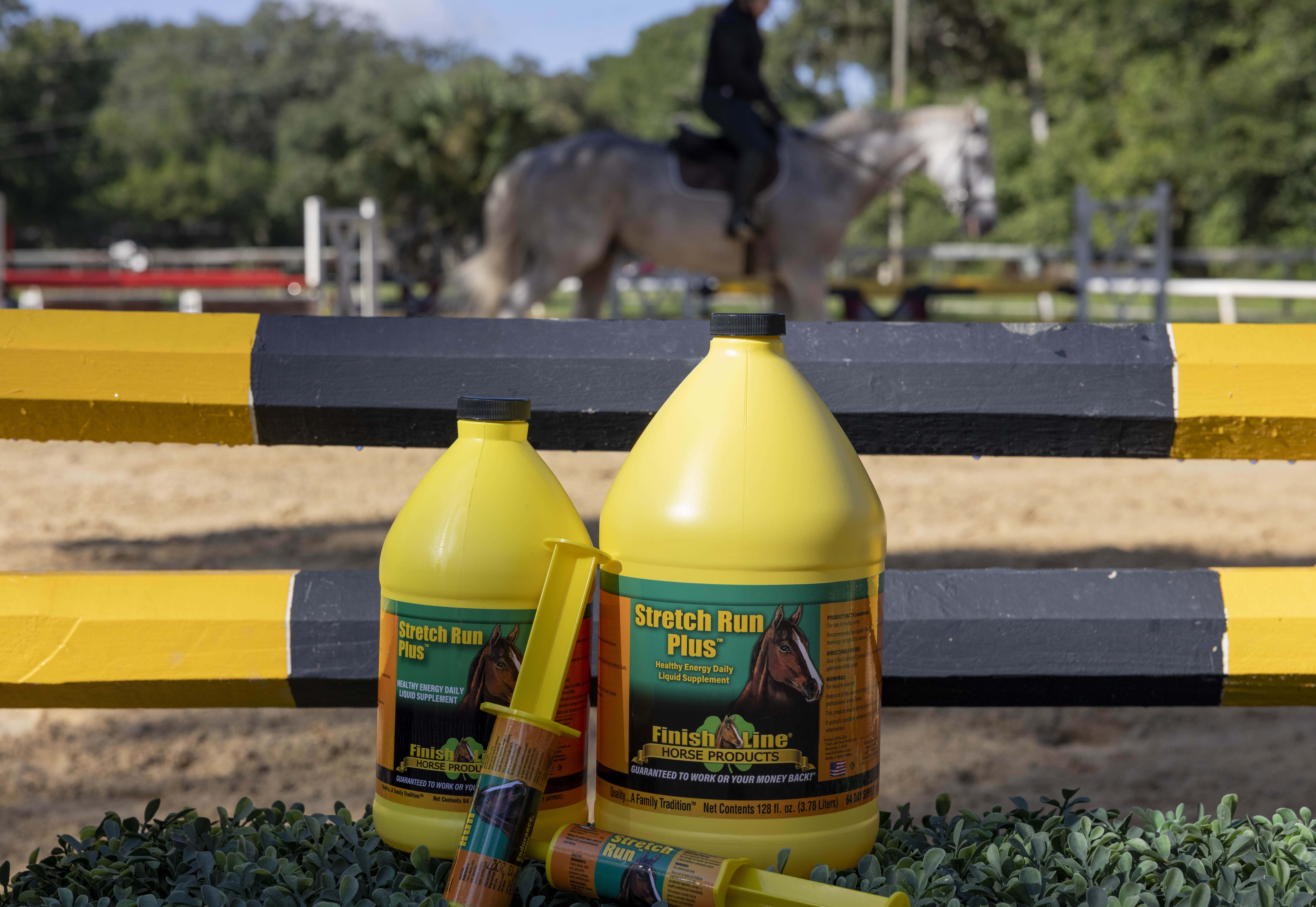Maintaining a healthy diet for your horse is vital to its overall well-being. Vitamins, specifically, help regulate your horse’s body functions, and the vitamins can be found in a number of items, including supplements, grass, hay and concentrates. Some vitamins may be more essential than others, however. Here are the three most crucial nutrients for your horse’s diet
Selenium
Selenium is a mineral found in the soil, and it plays numerous critical roles within your horse’s body. It has been suggested to help prevent certain forms of cancer, promote optimal immune responses and help with thyroid hormone activation. It’s common for a mineral block to be given to a horse to ensure that it’s getting the recommended amount of the mineral. Finish Line® also offers all-natural horse products like this Vitamin E and Selenium powder that contains 18 milligrams per pound of selenium. Do not overfeed selenium, as it can be toxic. Check other supplements and the level of selenium in the forage for your area.
Vitamin E
This fat-soluble vitamin is key in muscular efficiency and also plays a part in nerve and muscle development. When vitamin E is blended together with selenium, both of the nutrients work together to protect cell membranes within the immune system and protect enzymes from oxidation. In other words, the vitamin and mineral may better prepare your horse’s system from resisting disease. Green grass is a great source of vitamin E, but keep in mind the older the grass, the less of the vitamin it contains. If your horse only has limited access to fresh green grass, consider a vitamin supplement to give the animal the proper amount of vitamin E.
Vitamin C
Otherwise known as ascorbic acid, vitamin C wards off free radicals that can cause cell damage. Of course, that isn’t its only role. The nutrient also aids in collagen synthesis and bone calcification. A deficiency of the vitamin could lead to a poor immune system, scoliosis or even prevent wounds from healing quickly. However, vitamin C may only be necessary for horses who have poor liver health, as horses actually produce the enzyme L-gulonolactone oxidase, which converts glucose to vitamin C.
If your horse is in need of more vitamin C in its diet, consider this Vitamin C Pure supplement, which contains 23,375 milligrams of vitamin C per ounce.
Note: Always check with your vet before including any vitamins in your horse’s diet. The vet can help you figure out exactly how much of a nutrient your horse will need. Some vitamins and minerals need to be limited in amounts. Another example is vitamin A, which should be limited to 25,000 IU per day.








